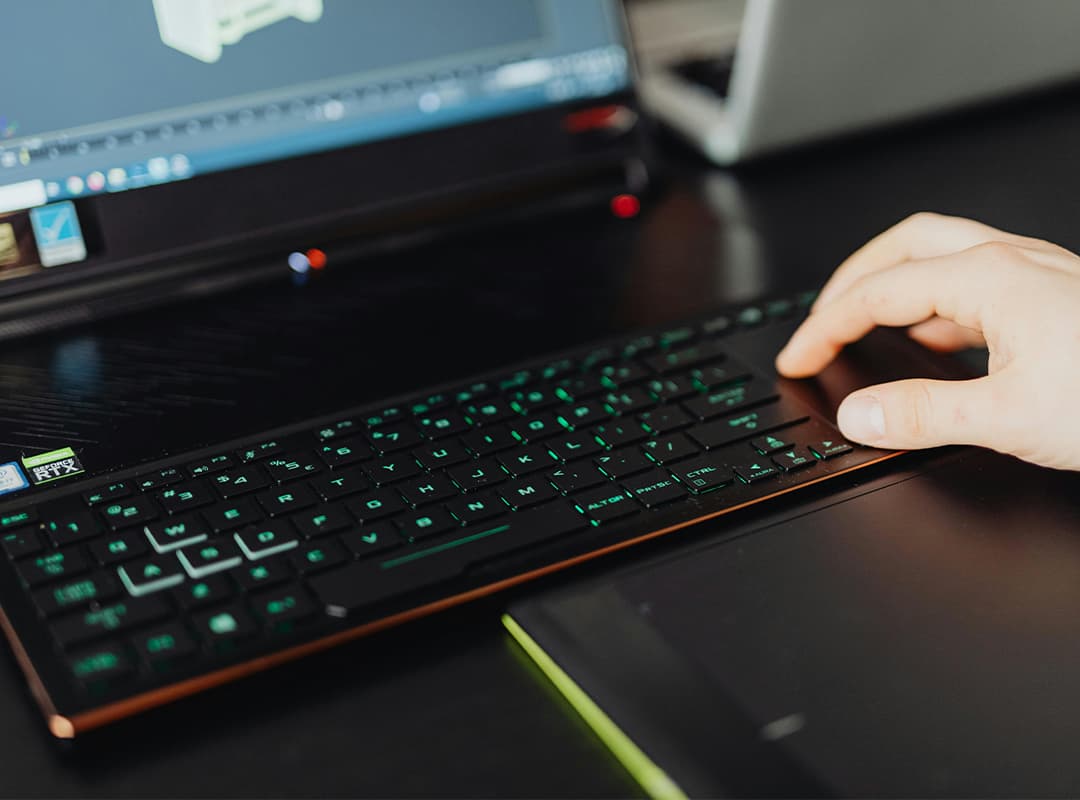In many technical and scientific fields, simulations are not only helpful tools—they’re integral to the research itself. From testing algorithms in controlled environments to modeling complex systems in physics or engineering, simulations serve as the backbone of many final academic projects. However, while the simulation side of the work might be exciting and practical, the writing part often becomes a daunting obstacle. Crafting a well-structured, academically sound thesis that accurately reflects the simulation work can be a serious challenge. Especially when time is limited or writing skills are underdeveloped, some students begin to explore whether it makes sense to Diplomarbeit schreiben lassen. In the following article, we’ll take a deep look into when and why that might be a reasonable, even strategic, decision.
Simulations in Academic Research: An Overview
Simulation-based research is common in fields like:
- Engineering (e.g., fluid dynamics, mechanical systems)
- Computer science (e.g., network behavior, AI learning models)
- Physics (e.g., particle systems, quantum behavior)
- Environmental science (e.g., climate modeling)
- Economics (e.g., market dynamics simulations)
These simulations often involve complex software, mathematical modeling, and large datasets. The value lies in their ability to predict or replicate behavior under controlled, variable conditions.
But here’s the challenge: a great simulation doesn’t automatically translate into a great thesis.
The Dual Burden: Technical Execution vs. Academic Writing
Students who conduct simulation-based research carry a dual burden:
- The Practical Side – Designing, building, running, and refining simulations
- The Academic Side – Writing a formal, structured document that meets research standards
These two skill sets don’t always overlap. A student might be excellent at building simulations but struggle to explain methods, contextualize results, or apply theoretical frameworks in writing.
Common obstacles include:
- Difficulty explaining technical decisions in accessible language
- Lack of clarity in documenting methodology
- Inadequate presentation of results (e.g., charts, graphs, statistical analysis)
- Trouble connecting simulation outcomes to theoretical foundations
- Time pressure due to debugging or repeated test runs
When the writing becomes an obstacle that endangers the success of the thesis, some students look for external help—especially when deadlines loom.
When Is It Reasonable to Consider Diplomarbeit schreiben lassen?
Outsourcing the writing of a thesis is a serious decision and not to be taken lightly. But there are situations where it can be a practical, ethical choice—as long as the core academic contribution remains with the student.
Here are situations where this option may be worth considering:
1. You Completed the Simulation, But Writing Isn’t Your Strength
You know your project, you built it, you ran tests—but you can’t seem to explain it clearly on paper.
2. You’re Multitasking Between Job, Study, and Life
Many students, especially in applied sciences, work part-time or full-time. Writing 60+ pages after 10 hours of simulation and code troubleshooting isn’t always realistic.
3. You’re an International Student
Language barriers are real. If English or German isn’t your first language, writing academically might be doubly challenging, even if you understand your project inside and out.
4. Your Advisor Offers Minimal Support
Not every student has access to strong academic supervision. If your advisor only checks in every few weeks, you may feel directionless and overwhelmed.
5. Your Thesis Is Part of a Company Partnership
Many simulation projects are done in collaboration with businesses. Balancing confidentiality, technical depth, and academic format can be confusing. Having writing support can help navigate this complexity.
In all these cases, seeking help is not about avoiding work—it’s about ensuring the result reflects your knowledge and effort.
Ethical Considerations: What Is and Isn’t Acceptable
Let’s be clear: academic integrity is non-negotiable. But that doesn’t mean every form of external support is cheating.
What’s Acceptable:
- Getting structural help or templates
- Working with an editor or academic writing coach
- Collaborating with a ghostwriter who helps document your existing work
- Using writing support as a learning opportunity
What’s Not Acceptable:
- Paying someone to produce fake data or invent simulations
- Submitting a thesis you did not contribute to intellectually
- Misrepresenting work as your own that was entirely written by someone else
A professional and responsible Diplomarbeit schreiben lassen arrangement focuses on communication, transparency, and collaboration, not deception.
How a Writing Partner Can Support Simulation-Based Projects
When students do choose to partner with a writing expert or agency, the process often includes:
1. Initial Briefing and Sharing of Work
The student provides logs, simulation results, code snippets, diagrams, and background materials.
2. Outlining the Thesis Structure
Together, they define chapters such as:
- Introduction and Research Question
- Theoretical Background
- Methodology and Simulation Setup
- Results and Interpretation
- Discussion and Limitations
- Conclusion
3. Drafting with Technical Accuracy
A writing partner helps express complex processes in academically correct language while preserving the technical integrity of the work.
4. Feedback and Revisions
The student remains involved by reviewing drafts, suggesting changes, and clarifying any misunderstandings.
5. Final Edits and Formatting
Professional formatting (citations, tables, figures, appendices) ensures the thesis meets university standards.
This collaboration mirrors how professional research papers are often produced—through teamwork between researchers and writers.
Case Example: A Simulation of Wind Turbines
Lucas, a mechanical engineering student, developed a simulation to optimize blade angles in wind turbines under varying wind conditions. The project involved:
- MATLAB for computational modeling
- Sensor data from a local test field
- CFD (Computational Fluid Dynamics) analysis
But when it came time to write the thesis, he struggled. He wasn’t sure how to describe the simulation setup in detail, or how to tie the results back to energy efficiency theory.
Lucas worked with a technical writing expert who helped him:
- Frame the research question properly
- Use clear diagrams and terminology
- Present simulation data in charts
- Compare results to published models
- Conclude with meaningful, critical reflection
He still authored the core ideas—but with support, he was able to produce a polished, coherent thesis that matched the quality of his simulation.
Key Benefits of Getting Support
• Clarity
Simulation reports can be dense. A writing partner helps simplify and clarify your message.
• Time Efficiency
Focus on what you do best (technical work) while getting help with what slows you down (formal writing).
• Confidence
Knowing your thesis is structurally sound and academically formatted boosts your readiness for defense or review.
• Professional Standards
Academic writing requires formal tone, citations, and formatting—areas where students often lose points unnecessarily.

What to Watch Out For: Choosing the Right Help
If you’re considering assistance, make sure the service:
- Has experience with technical and simulation-heavy content
- Offers transparent communication and pricing
- Involves you actively in the writing process
- Offers plagiarism-free, original writing
- Understands academic formatting (APA, IEEE, etc.)
- Maintains confidentiality and academic integrity
Stay away from services that promise to “do everything for you” without asking questions. Real support respects your contribution.
Tips for Writing Simulation-Based Theses (With or Without Help)
Even if you don’t use external help, here are strategies to improve your writing:
1. Explain Like You’re Teaching
Write as if your reader doesn’t know your code or model. Explain assumptions and variables.
2. Use Visual Aids
Flowcharts, graphs, and screenshots can clarify complex processes better than paragraphs.
3. Keep a Work Log
Record your steps, changes, and results during simulation. This will save hours when writing the methodology and results.
4. Link Back to Theory
After presenting simulation data, always tie it back to your research question or theoretical model.
5. Revise in Rounds
Don’t aim for perfection in the first draft. Focus on structure first, then language, then citations.
Final Thoughts: Excellence in Both Simulation and Expression
A strong thesis doesn’t just showcase what you built—it communicates why it matters, how it was done, and what it means. In simulation-heavy disciplines, the technical work is often impressive, but the communication part can make or break the overall impression.
Choosing to Diplomarbeit schreiben lassen—when done ethically and collaboratively—can be a smart strategy to ensure that the written thesis matches the quality of the simulation. It’s not about cutting corners. It’s about telling your story as clearly and effectively as you built it.
So if you’re stuck, overwhelmed, or simply want to ensure your hard work gets the academic recognition it deserves, don’t hesitate to seek support. Because sometimes, even the best simulation needs the right words to make it fly.



